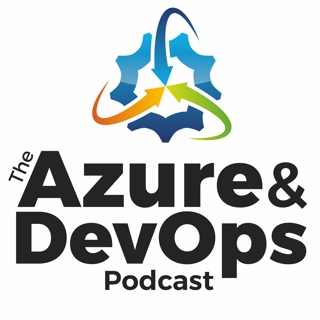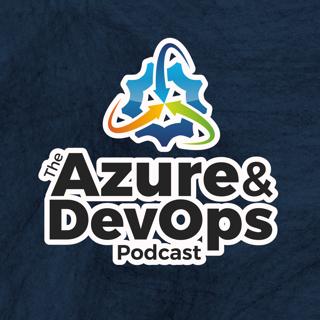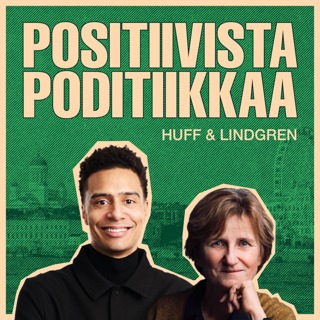
Jason Beres on DevOps for Shipping Libraries - Episode 155
This week on the podcast, Jeffrey is joined by none other than Jason Beres! Jason is the Sr. Vice President for Developer Tools at Infragistics; the world leader in user interface development tools and experts in User-Centered Design. As a senior software executive, Jason has over 25 years of experience in high-tech with a focus on customer and user experience, and has been with Infragistics for the last 17 of those years. DevOps for shipping code as opposed to shipping applications Mentioned in this Episode: Architect Tips — New video podcast! Azure DevOps Clear Measure (Sponsor) .NET DevOps for Azure: A Developer's Guide to DevOps Architecture the Right Way, by Jeffrey Palermo — Available on Amazon! bit.ly/dotnetdevopsebook — Click here to download the .NET DevOps for Azure ebook! Jeffrey Palermo’s Youtube Jeffrey Palermo’s Twitter — Follow to stay informed about future events! Infragistics Jason Beres’ LinkedIn The Azure DevOps Podcast Ep. 154: “Dean Guida on the Future of .NET Components” GitHub Actions Slingshot Indigo.Design | Infragistics App Builder | Infragistics Gherkin Want to Learn More? Visit AzureDevOps.Show for show notes and additional episodes.
23 Elo 202140min

Dean Guida on the Future of .NET Components - Episode 154
Joining Jeffrey this week is the CEO and founder of Infragistics, Dean Guida! Infragistics is the world leader in user interface development tools and experts in User-Centered Design; empowering you to build and style immersive user experiences and rich data visualization in line with business applications across all platforms. Dean Guida shares his insights on the future of .NET components; lessons he has learned having run a software company for over 30 years; his top recommendations when it comes to managing software teams, DevOps toolchains, preparing for the release of .NET 6, server-side vs. Web Assembly, what .NET developers should be doing today for full system testing, and more! He also gives advice to aspiring entrepreneurial software engineers, an overview of Infragistics’ tools, and what to be looking out for as a software developer today. Topics of Discussion: [:14] About The Azure DevOps Podcast, Clear Measure, and Jeffrey’s offer to speak at virtual user groups. [1:24] Jeffrey is looking to hire an apprentice! If you, or anyone you know, loves to code and wants to pursue software engineering, apply today! [2:13] Be sure to check out the new video podcast, Architect Tips. [2:17] About today’s episode with Dean Guida. [2:25] Jeffrey welcomes Dean to the show. [2:33] What got Dean into software development, the journey of his career, and how he came to create his company, Infragistics. [5:01] How many engineers do they have on staff at Infragistics? [5:09] Dean’s insights on managing software teams. [6:08] Dean’s perspective on cutting the scope vs. shifting the date. [7:25] Dean’s DevOps toolchain of choice. [8:25] Dean’s opinion on the adoption of GitHub Actions, Azure Pipelines, and Team City. [9:28] Dean’s vision for the .NET 6 release and his team’s strategy regarding it. [12:57] Dean’s recommended path for the teams where developers are asked to lay things out and do not have a designer. [14:00] Do most developers just need applications that are completely unique or should they be attaching themselves to certain UI framework and worrying about customization less? [15:58] Why Blazor is going to work so much better with .NET 6 than it has with .NET 5? [16:30] Dean’s take on server-side and Web Assembly. [17:22] A word from Azure DevOps Podcast’s sponsor: Clear Measure. [17:53] What would it take for web applications developers to make Blazor their framework of choice? [19:22] What should .NET developers be doing today for full system testing when they need to go top-down, through the user interface? [22:00] Dean’s vision for the intersection of Digital Workforce and application developers. [26:12] The tech stack behind Slingshot that puts it ahead of .NET 6 and MAUI. [27:28] Is MAUI going to have a huge refactoring or are there gaps in MAUI that Slingshot can fill? [29:08] About the current public preview of Slingshot on Infragistics of components for MAUI. [29:28] Dean’s take on whether developers will begin to create C# smartphone apps on .NET 6 if they haven’t before? [30:40] Having run a software company for over 30 years, Dean shares some of the important lessons he has learned and gives advice to aspiring software engineers. [33:09] Jeffrey thanks Dean for joining the podcast! Mentioned in this Episode: Architect Tips — New video podcast! Azure DevOps Clear Measure (Sponsor) .NET DevOps for Azure: A Developer's Guide to DevOps Architecture the Right Way, by Jeffrey Palermo — Available on Amazon! bit.ly/dotnetdevopsebook — Click here to download the .NET DevOps for Azure ebook! Jeffrey Palermo’s Youtube Jeffrey Palermo’s Twitter — Follow to stay informed about future events! Infragistics Dean Guida’s LinkedIn GitHub Actions Azure Pipelines TeamCity Slingshot Reveal Indigo.Design | Infragistics App Builder | Infragistics .NET 6 Blazor Digital Workforce .NET MAUI Xamarin Uno Platform WinUI Universal Windows Platform (UWP) Want to Learn More? Visit AzureDevOps.Show for show notes and additional episodes.
16 Elo 202134min

Continuous Integration Review - Episode 153
In today’s solo episode, join your host Jeffrey Palermo as he discusses continuous integration. With the ease of setting up triggered builds on build servers (such as Azure Pipelines or GitHub actions), it can be easy to think that once the documentation of the product is followed, we are done — but that's not the case. The DevOps tools currently on the market have gotten really good at making some of the steps easy, but, there are other steps where it's still up to you to put them in place. In light of this, Jeffrey provides listeners with an overview of continuous integration, its three major stages, and some of the rules of thumb that you need to follow to find success. Whether you use Azure Pipelines or another tool, this episode will provide you with the information you need in order to make sure you have put everything in place that you need to. Topics of Discussion: [:14] About The Azure DevOps Podcast, Clear Measure, the new podcast Architect Tips, and Jeffrey’s offer to speak at virtual user groups. [1:30] About today’s solo episode. [2:46] The dichotomy of quality and productivity, and the dynamic of ‘technical debt.’ [7:21] What happens when continuous integration is actually followed (and the benefits that result from it). [7:59] An overview of the three stages of continuous integration: the private build, the integration build, and the first deployment. [9:20] An overview of the first stage: the private build. [12:17] A word from The Azure DevOps Podcast’s sponsor: Clear Measure. [12:48] The second stage (or phase) of continuous integration: the integration build. [15:24] The third stage: the first deployment. [19:30] A review of the three stages of continuous integration and the three most important questions to answer. [20:47] What the ‘commit phase’ is. [21:06] Thank you for tuning in to this episode of The Azure DevOps Podcast! Mentioned in this Episode: Architect Tips — New video podcast! Azure DevOps Clear Measure (Sponsor) .NET DevOps for Azure: A Developer's Guide to DevOps Architecture the Right Way, by Jeffrey Palermo — Available on Amazon! bit.ly/dotnetdevopsebook — Click here to download the .NET DevOps for Azure ebook! Jeffrey Palermo’s Youtube Jeffrey Palermo’s Twitter — Follow to stay informed about future events! The Azure DevOps Podcast Ep. 150: “Capers Jones on Software Quality and Productivity” Applied Software Measurement: Global Analysis of Productivity and Quality, by Capers Jones Continuous Delivery: Reliable Software Releases through Build, Test, and Deployment Automation, by Jez Humble and David Farley Continuous Integration: Improving Software Quality and Reducing Risk, by Paul M. Duvall, Steve Matyas, and Andrew Glover Want to Learn More? Visit AzureDevOps.Show for show notes and additional episodes.
9 Elo 202122min

Scott Hunter on Preparing for .NET 6 - Episode 152
This week, Jeffrey is rejoined by return guest, Scott Hunter! Scott is the Director of Program Management for .NET at Microsoft. When Scott first joined Microsoft back in 2007, he was working on the ASP.NET team. As the Director of Program Management of .NET, Scott and his team build .NET Core, .NET Framework, ASP.NET, Entity Framework, managed languages (C#/F#/VB), as well as the Web and .NET Tooling for Visual Studio. The last time Scott was on the podcast, he and Jeffrey spoke about .NET 5. Now, less than a year later, the release of .NET 6 is coming up. In this episode, Scott speaks about the changes that he and his team have been working on developing, what developers should currently be paying attention to in preparation for the release of .NET 6, the biggest changes from .NET 5 to .NET 6 that developers can look forward to, and his insights on .NET MAUI, C# 10.0, .NET Upgrade Assistant, Visual Studio 2022, and more! If you’re a developer awaiting the release of .NET 6 or are currently experimenting with .NET 5, you should be tuning in to today’s conversation! Topics of Discussion: [:14] About The Azure DevOps Podcast, Clear Measure, the new podcast Architect Tips, and Jeffrey’s offer to speak at virtual user groups. [1:23] About today’s episode with return guest, Scott Hunter! [1:35] Jeffrey welcomes Scott to the podcast. [2:14] What developers should be paying attention to as the .NET 6 release approaches? [5:16] Will .NET Upgrade Assistant be built in to Visual Studio 2022 or is it a side tool? [6:16] Does .NET Upgrade Assistant function on all of the recent .NET versions? [6:36] For those with extensive web form applications, does .NET Upgrade Assistant know that you’re on your own or will it convert the rest of the solution and leave the web forms? Scott gives his recommendations for web form customers. [7:37] Scott shares what one of their big goals are as a team for .NET 6 and his recommendations for customers looking to go from .NET 5 to 6. [9:05] Scott talks about the tooling experience they’re trying to create with .NET 6 and one of the biggest changes on the tooling side in the .NET 6 space: hot reload. [15:09] A word from The Azure DevOps Podcast’s sponsor: Clear Measure. [15:40] How Scott and his team are working toward making .NET more approachable for all developers. [20:40] How many of the changes that Scott has talked about will be making the .NET 6 release? [23:05] Jeffrey and Scott talk .NET MAUI and building mobile apps. [29:50] Leading up to the .NET Conf, what should developers be paying attention to? [31:30] Would Scott say that .NET 6 is Microsoft’s biggest release in a while? [32:58] Jeffrey thanks Scott for joining the show! Mentioned in this Episode: Architect Tips — New video podcast! Azure DevOps Clear Measure (Sponsor) .NET DevOps for Azure: A Developer's Guide to DevOps Architecture the Right Way, by Jeffrey Palermo — Available on Amazon! bit.ly/dotnetdevopsebook — Click here to download the .NET DevOps for Azure ebook! Jeffrey Palermo’s Youtube Jeffrey Palermo’s Twitter — Follow to stay informed about future events! The Azure DevOps Podcast Ep. 119: “Scott Hunter on .NET 5” The Azure DevOps Podcast Ep. 24: “Scott Hunter on DevOps Capabilities in Azure” .NET 6 Preview .NET Upgrade Assistant Visual Studio 2022 Preview Blazor C# 9.0 “C# 10.0: Introducing Global Usings” .NET MAUI Xamarin .NET Conf 2021 Want to Learn More? Visit AzureDevOps.Show for show notes and additional episodes.
2 Elo 202133min

Amanda Silver on What’s Coming for Developers - Episode 151
Joining the podcast this week is Amanda Silver! Amanda is the Corporate Vice President (CVP) of Product for Microsoft's Developer Division which includes the Visual Studio family of products, .NET, TypeScript, and Azure developer platforms. She has been key to Microsoft's transformation to contribute to open source with the introduction of TypeScript, Visual Studio Code, and the acquisition of both Xamarin and GitHub. She believes that a tight digital feedback loop with zero distance between end-users and engineering teams is a critical element of great product development. In this episode, Amanda discusses what’s coming next for senior and junior developers alike. She shares her experiences on Microsoft’s Developer Division; what developers can look forward to regarding Visual Studio 2022, Azure PaaS, GitHub Codespaces, Visual Studio Code, and more. She also speaks about what the industry as a whole can do to improve developer and user satisfaction, attract more potential developers to the field, and how we can make education more accessible. Amanda has invaluable insights on many different topics that you’ll want to tune in for! “We need to talk to our customers [and] the people we aspire to be our customers every single day — that’s the only way that we can make sure that we’re building products that people love and use.” — Amanda Silver Topics of Discussion: [:14] About The Azure DevOps Podcast, Clear Measure, the new podcast Architect Tips, and Jeffrey’s offer to speak at virtual user groups. [1:18] About today’s episode with Amanda Silver. [2:00] Jeffrey welcomes Amanda to the podcast! [2:08] Amanda speaks about her career journey thus far and what has led her to her current position at Microsoft. [5:21] How Amanda’s team is organized at Microsoft, the work that they do, and the practices they engage in with their users. [9:37] Amanda shares her thoughts on the importance of developers, how developers can become more effective in their roles, what the industry can do to attract more people into the field, and more. [12:29] How the industry is helping developers enter the industry quicker and what can be improved on in the industry to lower the barrier to entry. [16:30] About the upcoming release of Visual Studio and the recent preview. [18:57] A word from Azure DevOps Podcast’s sponsor: Clear Measure. [19:29] Amanda describes machine learning and AI and how it can help developers. [22:33] Static analysis vs. probabilistic analysis. [26:09] Amanda describes the vision for Visual Studio Code. [30:02] Has Visual Studio Code become the most popular coding text editor? [30:58] There is a lot of Visual Studio Code in GitHub Codespaces. Amanda explains how these products fit together. [35:12] About the current work Microsoft is doing regarding Azure PaaS services and the changes that developers can look forward to in the future. [37:24] Are containers the future? [38:32] About Azure Arc, how it is designed, and what this means. [39:18] Jeffrey thanks Amanda Silver for joining the podcast. Mentioned in this Episode: Architect Tips — New video podcast! Azure DevOps Clear Measure (Sponsor) .NET DevOps for Azure: A Developer's Guide to DevOps Architecture the Right Way, by Jeffrey Palermo — Available on Amazon! bit.ly/dotnetdevopsebook — Click here to download the .NET DevOps for Azure ebook! Jeffrey Palermo’s Youtube Jeffrey Palermo’s Twitter — Follow to stay informed about future events! Amanda Silver on GitHub Amanda Silver’s LinkedIn .NET 6.0 Hot Reload Visual Studio 2022 Preview GitHub Codespaces Visual Studio Code Azure PaaS servicesKubernetes Azure Arc Want to Learn More? Visit AzureDevOps.Show for show notes and additional episodes.
26 Heinä 202140min

Capers Jones on Software Quality and Productivity - Episode 150
This week, Jeffrey is joined by Capers Jones! Capers is a software engineer and prolific researcher and publisher. He's written over 17 books on software engineering, software metrics, and software best practices — covering quality, productivity, and many other topics. He is a founder of Namcook Analytics, which is an international software consulting company where he currently serves as the Chief Scientist. Mr. Jones has spoken at numerous conferences and also advises international governments in software engineering. Capers started his career as a software engineer in the Office of the Surgeon General for the United States but found his passion for research and advisement at IBM where he developed methods of large project cost estimation as well as methods for productivity and quality measurement. Today, Capers continues to publish, speak and advise while he bridges the learnings and data of over 20,000 software projects to modern tools, languages, and software challenges. His latest book, Software Development Patterns and Antipatterns, is coming out in August 2021. You can pre-order it now on Amazon! In this conversation, Capers shares about his career in software engineering and researching; his upcoming book, Software Development Patterns and Antipatterns; trends he has noticed in recent data and his research; and big shifts that developers should be aware of in the industry. Capers also gives his thoughts on defect prevention techniques, design review, decomposition, formal inspection, static analysis, reusability, and more. This episode is jampacked with information on software quality and productivity — so don’t miss out! Topics of Discussion: [:14] About The Azure DevOps Podcast, Clear Measure, the new podcast Architect Tips, and Jeffrey’s offer to speak at virtual user groups. [1:22] About today’s episode with Capers Jones. [2:45] Jeffrey welcomes Capers to the podcast! [3:19] What led Capers into this field of software engineering and research as well as some of his major career highlights. [7:07] Capers recommends how to read through his body of work. [8:32] About Capers’ upcoming book, Software Development Patterns and Antipatterns. [9:26] Key practices that Caper recommends every team should be engaging in. [12:25] Has Capers found a difference in the trend of bugs for people who have decomposed software systems into multiple, smaller parts vs. keeping them all as a part of one codebase? (AKA the microservices movement) [13:32] Capers talks defect prevention techniques. [15:12] Defect detection or prevention/removal techniques for enterprise developers, or those running business applications, should employ. [16:16] What is a design review and how can you conduct one? [17:27] Ways that Capers has seen to implement a formal inspection that work well. [19:05] Capers’ thought process on static analysis today and what the data is showing. [19:48] Capers shares what has changed in software engineering recently due to new data and research. [23:04] Capers speaks about the importance of including users in the conversation as systems are being developed. [24:25] Capers talks about‘ reuseability’ when it comes to producing ½ million-1 million+ lines of code. [25:16] A word from Azure DevOps Podcast’s sponsor: Clear Measure. [25:48] Capers gives practical advice based on research for mid-sized companies with 5-10 developers. [27:53] Capers’ thoughts on function points (and any objective measures for software size) in the modern world. [28:42] What can development managers do to measure how big the software system is going to be, if their team is high-performing, etc.? [30:05] What tool does Caper recommend to use? [31:17] Caper gives a rundown of which tools you should be considering. [33:51] How much new data has been gathered in the last several years compared to the past? [34:15] What can a team do to submit their past projects to be included in the research? [35:16] How and why you should apply function points today. [41:08] Half of the developers in the industry today have less than 7 years of experience which means the number of programmers has doubled since 2014! Capers shares his thoughts on this. [43:50] Capers and Jeffrey discuss other data and statistics regarding the industry. [45:15] Capers shares some parting words on how and why you should pick up his newest book, Software Development Patterns and Antipatterns. [46:03] Jeffrey thanks Capers for joining the podcast. Mentioned in this Episode: Architect Tips — New video podcast! Azure DevOps Clear Measure (Sponsor) .NET DevOps for Azure: A Developer's Guide to DevOps Architecture the Right Way, by Jeffrey Palermo — Available on Amazon! bit.ly/dotnetdevopsebook — Click here to download the .NET DevOps for Azure ebook! Jeffrey Palermo’s Youtube Jeffrey Palermo’s Twitter — Follow to stay informed about future events! Namcook Analytics Caper Jones’ Email: Capers.Jones@gmail.com Software Development Patterns and Antipatterns, by Capers Jones Software Risk Master (SRM) Tool from Namcook “Variations in Software Development by Function Point Size,” by Capers Jones | IFPUG Applied Software Measurement: Global Analysis of Productivity and Quality, by Capers Jones Software Engineering Institute Want to Learn More? Visit AzureDevOps.Show for show notes and additional episodes.
19 Heinä 202147min

David Starr on Better Engineering Practices - Episode 149
This week on the podcast, Jeffrey is welcoming an old friend of his, David Starr! David is a Principal Solutions Architect in the Azure Industry Experiences team at Microsoft where he focuses on helping companies bring their solutions to Azure and the Azure Marketplace, becoming Microsoft partners. David is the founder of ElegantCode.com, has served in numerous leadership roles, and has been an early and consistent advocate for Agile workflow and engineering practices. He is a co-host of his own podcast as well, Azure For Executives. In this episode, David speaks about better engineering practices, different levels of testing, his favorite tools, and the absolute fundamental engineering practices that developers should be engaging in. He also shares his take on MOQs, shift left testing, pin testing, and more! Topics of Discussion: [:14] About The Azure DevOps Podcast, Clear Measure, the new podcast Architect Tips, and Jeffrey’s offer to speak at virtual user groups. [1:32] About today’s episode with David Starr! [2:11] Jeffrey welcomes David Starr to the podcast. [2:32] David shares some of his career highlights and what led him to work at Microsoft. [8:11] What are some of the great engineering practices that are most applicable today? [10:53] David shares some key takeaways around having better agility through better engineering practices. [15:22] A word from Azure DevOps Podcast’s sponsor: Clear Measure. [15:54] Fundamental engineering practices that all teams should be engaging in. [18:58] David explains what pin testing is and why it is important. [20:20] David shares his favorite tools in Visual Studio. [21:26] How to know what levels of testing to add to your build when you’re getting started. [22:21] David’s take on MOQs. [23:35] Talking about different levels of tests. [23:57] Jeffrey and David discuss the Software as a Service (SaaS) transformation of the Azure DevOps team of going from Visual Studio Team Server to Visual Studio Team Services. [24:39] David explains the term ‘shift left’ testing. [25:43] Why shift left and not shift right? [28:22] Other engineering practices that David advises developers to go after, after the build and testing. [37:18] Where to learn more about what David is talking about and connect with him online! [38:12] Jeffrey thanks David for joining the podcast. Mentioned in this Episode: Architect Tips — New video podcast! Azure DevOps Clear Measure (Sponsor) .NET DevOps for Azure: A Developer's Guide to DevOps Architecture the Right Way, by Jeffrey Palermo — Available on Amazon! bit.ly/dotnetdevopsebook — Click here to download the .NET DevOps for Azure ebook! Jeffrey Palermo’s Youtube Jeffrey Palermo’s Twitter — Follow to stay informed about future events! The Azure DevOps Podcast’s Twitter: @AzureDevOpsShow David Starr on Pluralsight The Azure for Executives with David Starr David’s Website: ElegantCode.com David’s Twitter: @ElegantCoder David on GitHub @DStarr Scrum.org Ken Schwaber 97 Things Every Scrum Practitioner Should Know: Collective Wisdom from the Experts, by Gunther Verheyen Azure DevOps Services Want to Learn More? Visit AzureDevOps.Show for show notes and additional episodes.
12 Heinä 202138min

Richard Lander on the New .NET Platform - Episode 148
Richard is a Principal Program Manager on the .NET Core team at Microsoft. He's been with Microsoft for a total of 21 years, 18 of which have been with the .NET team (since 2003 when the codename was Whidbey!) Richard is truly a mover and shaker when it comes to pushing the .NET platform forward! Currently, he’s working on runtime features and performance, CLI experience, docker container experience, ARM32 and ARM64 support, IoT/GPIO/PWM support, blogging and customer engagement, and speaking at conferences. He's also part of the design team that defines new .NET runtime capabilities and features. And in his spare time, he enjoys British rock and Doctor Who! A lot has changed since Richard was last on the show! In this episode, he is here to discuss all of the changes to the new .NET platform, how he’s continuing to push the .NET platform forward together with his team, the current state-of-the-art tools and techniques in the .NET IoT space and .NET applications, exciting developments with his current .NET blog series on DevBlogs.Microsoft.com, and much more! Topics of Discussion: [:14] About The Azure DevOps Podcast, Clear Measure, the new podcast Architect Tips, and Jeffrey’s offer to speak at virtual user groups. [1:23] About today’s episode with Richard Lander! [2:07] Jeffrey welcomes Richard Lander back to the podcast. [2:24] Richard shares what has changed on his team in the last two years and what they have been recently up to. [4:19] Richard shares about his role with the .NET team and what he mainly works on. [5:54] Richard’s vision and goals with the new .NET blog series. [7:56] About the various topics Richard has covered thus far with his blog series and a sneak preview of some upcoming blog topics he will be covering. [8:42] Richard shares what he and his team are doing on the front of platform OS enablement and Apple Silicon. [13:04] Jeffrey and Richard discuss Microsoft’s focus on backwards compatibility. [14:44] The current state-of-the-art in the .NET IoT space. [18:51] Have the .NET and IoT teams had conversations around Terminal.Gui? [19:20] A word from Azure DevOps Podcast’s sponsor: Clear Measure. [21:00] What is the current method with IoT devices? Are there any built-in testing capabilities? [24:19] Richard shares what the current state-of-the-art is for those doing regular .NET applications. [29:22] If a developer just deploys to App Service, are they using Azure containers under the covers regardless? [30:50] Richard shares his predictions on what he sees as being the most general-purpose runtime (AKS, App Service, ACI, etc.) in Azure for regular Blazor applications that developers are starting to build. [34:40] Jeffrey and Richard reflect on why it is such an interesting and exciting time to be a developer. [35:45] Does .NET and C# have the fastest mainstream execution? [39:48] Jeffrey thanks Richard for joining the podcast. Mentioned in this Episode: Architect Tips — New video podcast! Azure DevOps Clear Measure (Sponsor) .NET DevOps for Azure: A Developer's Guide to DevOps Architecture the Right Way, by Jeffrey Palermo — Available on Amazon! bit.ly/dotnetdevopsebook — Click here to download the .NET DevOps for Azure ebook! Jeffrey Palermo’s Youtube Jeffrey Palermo’s Twitter — Follow to stay informed about future events! The Azure DevOps Podcast’s Twitter: @AzureDevOpsShow Richard Lander’s LinkedIn Richard Lander .NET Blogs The Azure DevOps Podcast Ep. 50: “Richard Lander on .NET Core Runtime” InfoQ Apple Silicon Microsoft Ignite The Azure DevOps Podcast Ep. 146: “Charlie Kindel on Terminal.Gui” Terminal Gui source code MAUI Xamarin Blazor Kubernetes Azure ACI AKS App Service Microsoft Build Want to Learn More? Visit AzureDevOps.Show for show notes and additional episodes.
5 Heinä 202140min






















